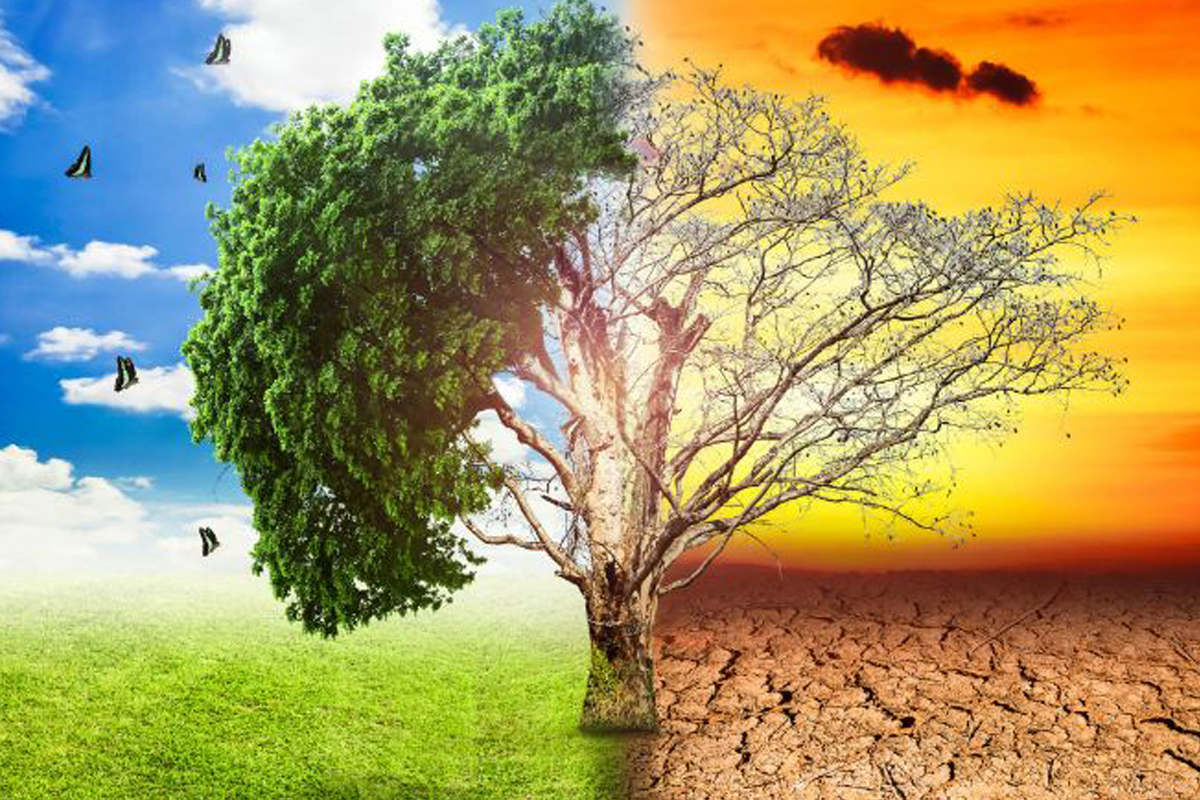The year 2025 has thrown up new risks for global environmental policies. Amidst the continuing and burgeoning threats of climate change, biodiversity loss, over-exploitation of natural resouces and resultant environmental degradation, an added risk is that of global finance for environmental actions drying up or slowing down. Governments in the developed world are increasingly losing the will and capacity to support the global goals at the cost of the domestic exchequer.
They may not have officially downgraded their support for global goals. But their ability and willingness to part with public resources is certainly in question. The announcements made by the new dispensation in Washington DC have rendered the matters a little more difficult. Many regions of the world are severely affected by persistent social and military conflicts. In such regions, climate transition pathways are obviously not a priority over the existential questions of survival and reconstruction. The conflicts have lowered the appetite of the developed country governments to deploy resources for the benefit of communities in other regions. A combination of several factors ranging from supply chain disruptions, global energy supply uncertainties, and rising trade protectionism have contributed to the worsening scenario. On the other hand, the demand for more and affordable energy continues to rise in developing countries like India and the need for protection from devastating impacts of environmental degradation is felt more than ever. What then is a possible solution to the pressing question of dwindling global finance for environmental goals.
Advertisement
Can the markets and other stakeholders fill this gap? Is it feasible for the governments in the developing world to forge partnerships with private sector entities to secure flow of investments in areas where they need fresh technologies and higher quantum of finance for green transition? This is easier said than done. Globally, reliance on the private sector in environmental actions is usually seen, and rightly so, as an abdication of responsibility of the governments. Also, in most cases this does involve higher costs for the exchequer and the economy. The private sector is not driven by charity in making investments and places priority on covering the financial risks over social benefits. It is in this context that the value of appropriate partnerships between governments and the private sector comes to the fore. While the use of market instruments may indeed impose certain costs on the producers and consumers in the short term, the long term economic and non-economic costs of inaction and loss of environmental sustainability also need to be factored in.
If the private sector, industry and governments join hands in pursuit of certain goals, the resulting partnership has the potential of optimising resources and bringing down the overall costs of transition in the medium to long run. The Paris Agreement signed in 2015 recognised the role of various stakeholders other than the governments in addressing the problem of climate change. The Agreement is built on the premise that the corporate bodies should internalize the social and regulatory concerns and take pro-active stances in alignment with the global and national environmental goals. Nothing makes it more striking than the fact that Bloomberg Philanthropies came forward to support the activities of the UNFCCC Secretariat when the Trump administration had scaled down its financial contribution to the global project of climate stabilization in 2016.
The most recent climate conference in Baku has formally invited the international financial institutions “to align their operational models, channels and instruments to be fit for purpose for urgently addressing global climate change, development and poverty”. The decision in Baku to count ‘all climate-related outflows from and climate-related finance mobilized by multilateral development banks’ towards achievement of the new collective quantified goal on climate finance is an indication that the solutions will emerge only if we begin to create mechanisms and institutions for collective action by all stakeholders. Transitions from a fossil fuel and resource-intensive economy to one that is low emission and resource-efficient depends not only on changes in the production pattern but also on the responsible behaviour of society.
Corporate bodies and consumers need to make sustainable consumption of natural resources part of their behaviour and investment plans. This, in turn, requires not just new and additional finance for production but also green and affordable products, and technologies to make it happen. Knowledge of and awareness about the existence of such products, technologies and the potential of their application in changing regulatory and corporate behaviour is key to such changes. Several sectoral industry leaders, governments and think tanks have begun to see the value of such collaboration through specialized platforms. TERI as a large environmental think tank has been playing its role through the WSDS in bringing global and international stakeholders together and promoting sustainable solutions of this nature. India as a developing country has been an active practitioner of this idea. It has forged partnerships both bilaterally as well as a global player to support innovation and create demand for green products and technologies. The international solar alliance, the global biofuel alliance, coalition for disaster resilient infrastructure, global hydrogen alliance, leadership group for industry transition are some examples of partnerships between entities from the corporate world and the governments where India has played an active role.
Alliances of this nature serve the three-fold purpose of fostering innovation, securing finance and creating demand for new products and technologies. It is clear from the recent geopolitical developments that most developing countries need to fend for themselves, notwithstanding the lofty global goals for climate protection, when it comes to sustainability. Forging partnerships with key stakeholders in industry and governments across the globe and creating opportunities for finance to flow into sustainable products and technologies is critical to change the corporate and social behaviour in the long run.
(The writer is a distinguished fellow at TERI and a former civil servant with the Government of India)









